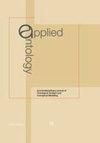A plea for epistemic ontologies
IF 3.5
4区 计算机科学
Q3 COMPUTER SCIENCE, ARTIFICIAL INTELLIGENCE
引用次数: 0
Abstract
In this article, we advocate the use of “epistemic” ontologies, i.e., systems of categories representing our knowledge of the world, rather than the world directly. We first expose a metaphysical framework based on a dual mental and physical realism, which underpins the development of these epistemic ontologies. To this end, we refer to the theories of intentionality and representation established within the school of Franz Brentano at the turn of the 20th century and choose to rehabilitate the notion of a ‘representation object’, as theorized by Kasimir Twardowski. We therefore propose that the categories of epistemic ontologies correspond to ‘general representation objects’. Secondly, we apply these proposals to the treatment of technical artefacts, material qualities of objects and events (notably as a continuation of our previous work on events). This leads us to sketch out a foundational epistemic ontology.对认识论本体论的呼吁
在本文中,我们主张使用 "认识论 "本体论,即代表我们对世界的认识而非直接代表世界的范畴体系。我们首先揭示了一个基于精神和物理双重现实主义的形而上学框架,它是这些认识论本体论发展的基础。为此,我们参考了弗朗茨-布伦塔诺(Franz Brentano)学派在 20 世纪初建立的意向性和表征理论,并选择恢复卡西米尔-特沃多夫斯基(Kasimir Twardowski)理论中的 "表征对象 "概念。因此,我们提出认识论本体的范畴对应于 "一般表征对象"。其次,我们将这些建议应用于技术人工制品、物体的物质特质和事件的处理(尤其是作为我们之前关于事件的工作的延续)。由此,我们勾勒出一个基础认识论本体论。
本文章由计算机程序翻译,如有差异,请以英文原文为准。
求助全文
约1分钟内获得全文
求助全文
来源期刊

Applied Ontology
COMPUTER SCIENCE, ARTIFICIAL INTELLIGENCE-COMPUTER SCIENCE, INFORMATION SYSTEMS
CiteScore
4.80
自引率
30.00%
发文量
15
审稿时长
>12 weeks
期刊介绍:
Applied Ontology focuses on information content in its broadest sense. As the subtitle makes clear, two broad kinds of content-based research activities are envisioned: ontological analysis and conceptual modeling. The former includes any attempt to investigate the nature and structure of a domain of interest using rigorous philosophical or logical tools; the latter concerns the cognitive and linguistic structures we use to model the world, as well as the various analysis tools and methodologies we adopt for producing useful computational models, such as information systems schemes or knowledge structures. Applied Ontology is the first journal with explicit and exclusive focus on ontological analysis and conceptual modeling under an interdisciplinary view. It aims to establish a unique niche in the realm of scientific journals by carefully avoiding unnecessary duplication with discipline-oriented journals. For this reason, authors will be encouraged to use language that will be intelligible also to those outside their specific sector of expertise, and the review process will be tailored to this end. For example, authors of theoretical contributions will be encouraged to show the relevance of their theory for applications, while authors of more technological papers will be encouraged to show the relevance of a well-founded theoretical perspective. Moreover, the journal will publish papers focusing on representation languages or algorithms only where these address relevant content issues, whether at the level of practical application or of theoretical understanding. Similarly, it will publish descriptions of tools or implemented systems only where a contribution to the practice of ontological analysis and conceptual modeling is clearly established.
 求助内容:
求助内容: 应助结果提醒方式:
应助结果提醒方式:


